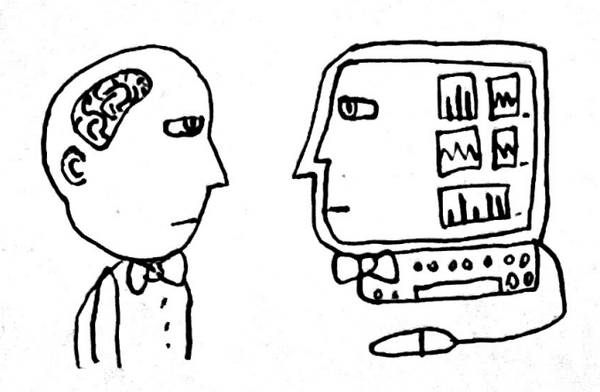Earlier this month, Ohio State University unveiled its new “AI Fluency Program,” a campus-wide initiative designed to ensure that every student graduates fluent in artificial intelligence. Not merely familiar—fluent. The message is unmistakable: Using AI isn’t just permitted, it’s expected. Mastery of large language models is now a prerequisite for success, a kind of digital literacy for the age of optimization. As The New York Times recently noted, institutions from Duke to the University of Maryland to the California State University system are following suit, “embedding artificial intelligence tools in every facet of campus life.” Once considered a potential shortcut or cheat, generative AI is being recast as a mark of cutting-edge competence—less like sneaking notes under the table, more like learning a second language. In this brave new academic order, the AI-using student is no longer suspect, but the standard.
Welcome to the new steroid era in America, in which the speed, subtlety, and near-invisibility of AI assistants grant individuals the power of a flawed but capable demigod. In the two and a half years since OpenAI introduced ChatGPT in November 2022, it has iterated and improved to the point that users are getting a significant performance boost, despite frequent hiccups and hallucinations. Users don’t have to know precisely what they’re searching for. You can simply prompt, nudge, and suggest, and the ghost in the machine summons words and images to fill in the blanks.
“What counts as cheating when the performance-enhancing tools are increasingly baked in?”
The NCAA bans all use of performance-enhancing drugs (PEDs), but the rules around performance-enhancing technology for AI use are muddy, with colleges like Ohio State encouraging it while others have made the use of tools like ChatGPT for schoolwork punishable by expulsion. The ongoing conflicts over student AI use raise larger questions: What counts as cheating when the performance-enhancing tools are increasingly baked in? Is using AI to help, say, draft your essays—or your job cover letters or wedding vows—dishonest, or simply judicious? Where exactly do we draw the line between self-improvement and self-debasement, between tool and crutch?
